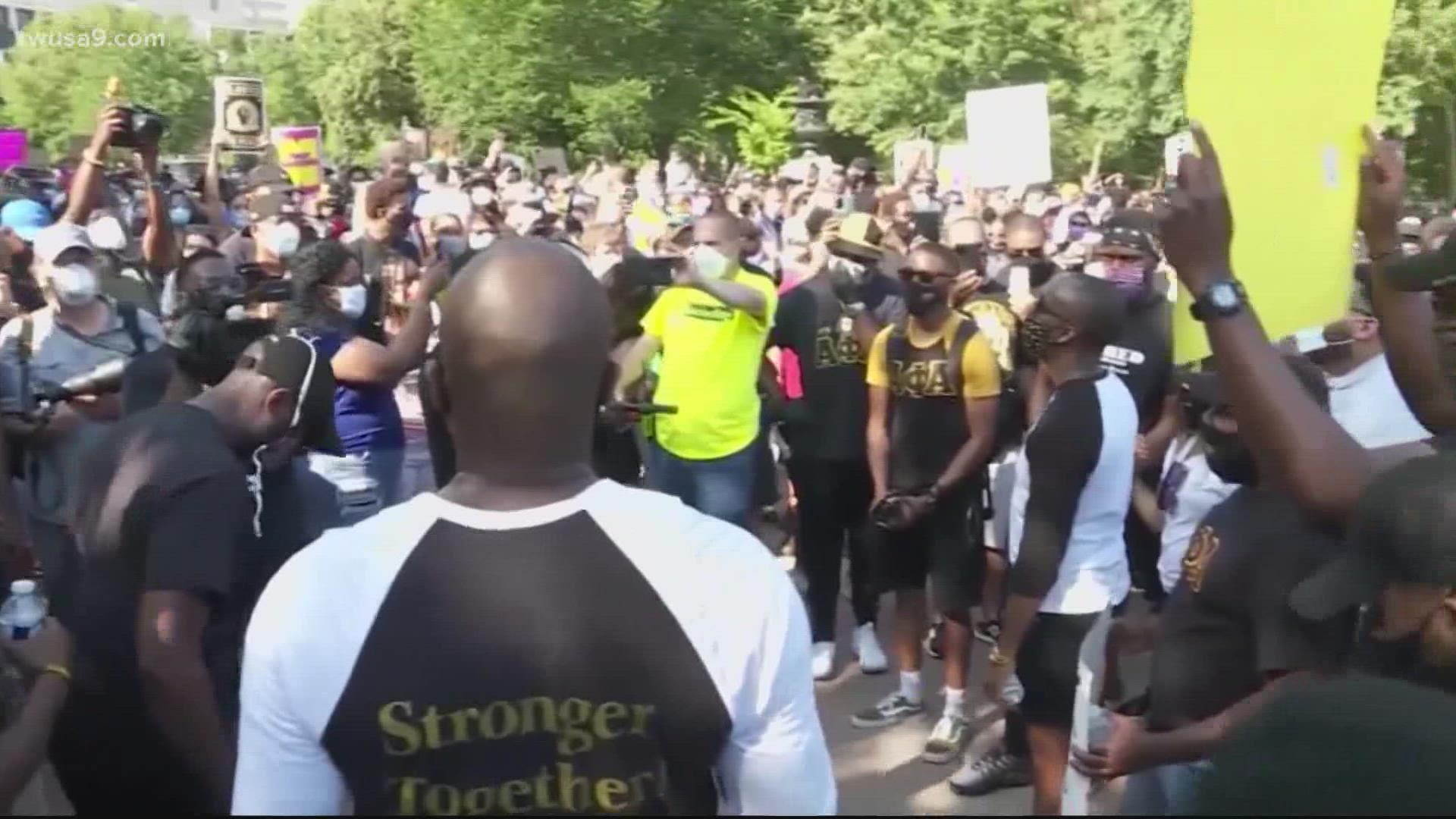WASHINGTON D.C., DC — February is Black History Month and this year’s theme is Black Health and Wellness. With that in mind, WUSA9 is focusing on Black mental health. Recently, some prominent members of the black community have taken their own lives including Ian Alexander, Jr. son of actor Regina King, Hyattsville Mayor Kevin Ward, and shortly afterward Miss USA Cheslie Kryst.
While the pandemic has taken its toll on all of us, researchers say more African Americans are taking their own lives because of it. So, let’s Verify why this is happening and what can we do about it.
Sources:
- U.S. Department of Health and Human Services
- National Alliance of Mental Illness
- American Psychiatric Association
- Dr. Paul Nestdat, Co-Director of Johns Hopkins Anxiety Disorder Clinic
- African American Project.
Answer:
“African American health disparities have always existed and we need to have an organization that is for us by us that teaches African Americans how to advocate for themselves,” said African American Project Executive Director Monique LeNoir.
WUSA9 spoke with both LeNoir and AAP board member Dr. George Woods, a neuropsychiatrist.
“Environment trumps genetics and environment really shapes psychiatric response,” explained Dr. Woods.
Dr. Woods said as the country became consumed with COVID-19 and racial injustices, African Americans disproportionally carried the weight of those burdens.
“African Americans have always been the canaries in the coal mines of American culture,” said Woods, “We are the ones that really experience the toxic fumes of racism. We've always been essential workers, without caring for our health, because we're seen as being somehow disposable.”
What does the national data tell us?
According to the HHS Office of Minority Health, in 2019 suicide was the second leading cause of death among African Americans between 15 and 24 years old. The study also found Black high school-aged girls were 60% more likely to take their own lives than their white classmates.
“We're starting to see a decrease in the general suicide rate in America for the first time in 20 years. But we're not seeing that decrease in communities of color,” said Dr. Paul Nestdat of Johns Hopkins Medicine. In fact, Dr. Nestdat said suicides among Black Marylanders doubled from previous years to 94% during the COVID lockdown between March and July 2020. His research showed white Marylanders' suicide rate dropped to 48% during that same time period. The doctor’s peer-reviewed research was published in the Journal of the American Medical Association in December 2020.
“That tells us that we're not paying enough attention to specific vulnerabilities,” explained Dr. Nestdat. “Access to care is one of the most important things, and it's where there's maybe the most disparities in this country.”
A study by the American Psychiatric Association showed about 11% of Black Americans don’t have health insurance. An analysis by NAMI listed contributing factors as, economic disparities, provider bias, inequality of care, and stigma.
“The African American community for so long, seeking help has been seen as a sign of weakness, especially among Black men,” said LeNoir, “So, what we really would like to do first is help to remove that stigma, ensure that African Americans do receive the help that they need.”
AAWP acknowledges that the healthcare disparities in the mental care system exist and it is important to:
- Recognize the signs that both adults or children my need mental health intervention.
- Reduce the stigma associated with seeking mental health services
- Work with allies to increase the availability of mental health services especially for children of color
- Present potential barriers people of color and women encounter when entering mental health system that is often dismissive, disrespectful and littered with unconscious bias.
- Provide our community with the tools need to overcome those barriers to get the most out of the experience on seeking mental health services...focus on navigation and advocacy
AAWP's mental health initiative includes:
- Research and Focus Groups
- Partnership
- Communication
- Advocacy
This year AAWP has plans to:
- Conduct a survey among educators that will inform our plan
- Encourage wellness checks on the AAWP website for depression and stress,
- Launch a social media campaign destigmatizing treatment for mental health issues,
- Conduct focus groups among Black psychiatrists and mental health providers about how to best screen for mental health issues among this population
- Host a virtual event for parents on how to deal with mental health issues among children and techniques to cope.

